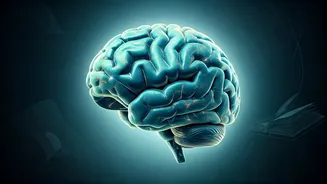Prioritize Protein Intake
The first crucial habit is to ensure you're consuming adequate protein daily. Protein is a nutritional powerhouse, essential for building and repairing
tissues, and it plays a significant role in weight management. When you eat enough protein, you tend to feel fuller for longer, which can naturally reduce your calorie intake throughout the day. Think of protein as your ally in combating hunger pangs. It’s also vital for preserving muscle mass during weight loss. Aim to include a good source of protein in each of your meals, such as lean meats, poultry, fish, eggs, or plant-based options like beans and lentils. This simple change can significantly impact your weight loss journey.
Hydrate Consistently
Next on the list is the importance of hydration. Drinking enough water is often underestimated, but it's a cornerstone of good health, especially when trying to lose weight. Water can help you feel fuller, reducing the likelihood of overeating. Sometimes, our bodies mistake thirst for hunger, leading to unnecessary snacking. Therefore, staying hydrated can help control your appetite and aid in your weight loss goals. Aim to drink water throughout the day, and consider carrying a water bottle with you to make it easier. Besides aiding weight loss, adequate hydration supports overall health and ensures your body functions optimally. Remember, water is essential for numerous bodily functions, so staying well-hydrated is key.
Embrace Regular Exercise
Regular exercise is a non-negotiable element for effective and sustainable weight loss. The trainer emphasizes incorporating physical activity into your daily routine. Exercise helps burn calories, increases your metabolism, and improves your overall fitness. However, it doesn’t mean you have to spend hours at the gym every day. Starting with moderate exercise, such as brisk walking or cycling, can provide significant benefits. Find activities you enjoy, whether it's dancing, swimming, or hiking, to make exercise a sustainable habit. Consistent exercise not only supports weight loss but also boosts your mood, reduces stress, and improves your overall quality of life. Aim to be active most days of the week for maximum benefits.
Prioritize Sleep Quality
The importance of sleep is often overlooked in weight loss efforts. Poor sleep can disrupt your hormones, increasing your appetite and making it harder to lose weight. When you don't get enough sleep, your body produces more of the hunger hormone, ghrelin, and less of the fullness hormone, leptin, leading to increased cravings and overeating. Aim to get seven to nine hours of quality sleep each night. Creating a relaxing bedtime routine, ensuring your bedroom is dark and quiet, and avoiding screen time before bed can help you improve your sleep quality. Prioritizing sleep is a vital habit that supports both your weight loss journey and your overall health and well-being.
Manage Stress Effectively
Finally, the fitness trainer stresses the significance of managing stress. Chronic stress can lead to increased cortisol levels, which may contribute to weight gain, particularly around the abdomen. When you’re stressed, your body can crave comfort foods, leading to unhealthy eating habits. Finding healthy ways to manage stress, such as meditation, yoga, or spending time in nature, is important for your overall health and weight loss. Practice stress-reducing techniques regularly to support your well-being. Reducing stress not only helps in weight management but also promotes better mental health, making it a crucial aspect of a healthy lifestyle. It is essential to manage stress to make positive changes.














